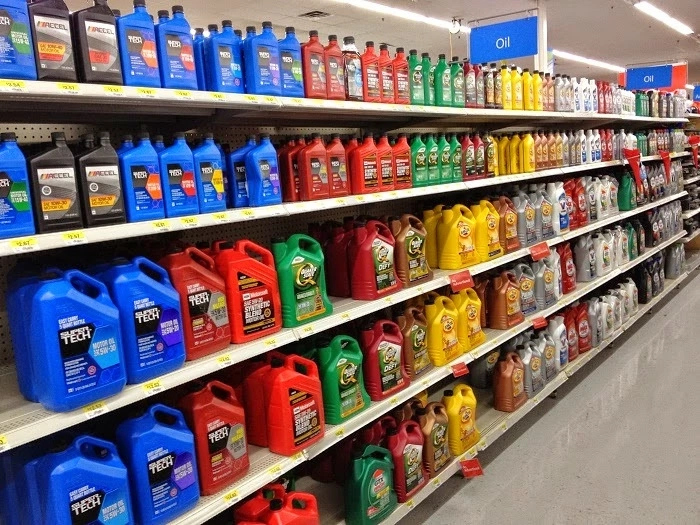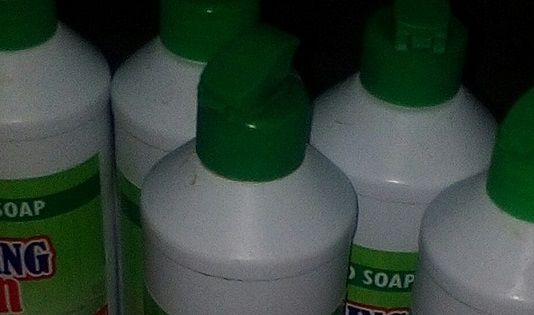Steps to Produce Engine Lubrication In Nigeria
Here in this post, we are going to show the Steps to Produce Engine Lubrication In Nigeria . We hope you find this informative and useful.
Introduction
Because of the metallic nature of engine parts, automobiles and other machines rely extensively on engine oil in other to maintain smooth maneuvering of their parts. Lubrication oil keeps the moving parts from grinding against each other causing wear and damage.
👉 Relocate to Canada Today!
Live, Study and Work in Canada. No Payment is Required! Hurry Now click here to Apply >> Immigrate to CanadaInventors throughout history have always deviced ways of keeping friction as minimal as possible in the engines of the machines they manufactured.
Read Also: How To Start Engine Oil Business In Nigeria

And as innovation keeps rising, lubricating engine parts is no longer a challenge because engine oils of different make and for different purpose have flooded the market.
As a result of research and research results available to the public, individuals can now produce their own brand of lubrication oil; there are a lot of brands in the market so that automobile and engine users can have different varieties to choose from depending on which brands works better for their engine parts.
The two basic categories of lube oil are mineral and synthetic oils. Mineral oils are refined from naturally occurring petroleum, or crude oil.
Synthetic oils are manufactured polyalphaolefins, which are hydrocarbon-based polyglycols or ester oils. Although there are many types of lube oils to choose from, mineral oils are the most commonly used because the supply of crude oil has rendered them inexpensive; moreover, a large body of data on their properties and use already exists. Another advantage of mineral-based lube oils is that they can be produced in a wide range of viscosities.
Read Also: 10 problems in Nigeria oil and gas industry and possible solutions
Demand for Lubrication Oil In Nigeria
Engine oil is on an ever increasing demand in the Nigerian market. A wide range of machines make use of lubrication oil, these include automobiles, electric generators, grinding engines, industrial machines, etc.
👉 Relocate to Canada Today!
Live, Study and Work in Canada. No Payment is Required! Hurry Now click here to Apply >> Immigrate to CanadaEngine oil is not one of those commodities automobile owners especially can do without. No one wants to risk the long lifespan of his engine.
Engine oil as has been earlier mentioned is used by different kinds of machines. It can be used by both petrol and diesel engine oil, though in different grades.
The petrol engine oil are used in serving passenger car (light cars) while diesel engine oil are used in servicing generators (small and big) and also for heavy cars(diesel cars).
Furthermore, the Lube market consists of two major segments: automotive and industrial segments, having a market share of 70% and 30%, respectively.
Most of the competition is crowding into the first category. In the automotive segment, while cars, Generators and two or three wheelers segment accounts for 65% of the market, diesel operated engines, trucks and other heavy vehicles have the bulk share of 35%.
The lubricating oil and grease are one of the most important sectors of the petrochemical industry. The size of lubricating oil and grease market in Nigeria has widened over the years.
Read Also: 6 Reasons Why You Need A Vehicle Tracking Device Installed In Your Car
Profitability Of Lubrication Production Business
To produce a ton of lubricant, it will cost a maximum of $300. With the present increase in the prices of petroleum products, a ton will be sold at a minimum of $1,000; a gross profit of $400 per ton is accruable.
With a mini-plant of 1 ton per day, working for 200 days, annual profit of $100,000 is guaranteed from this investment. This is no doubt, a good investment opportunity.
Note: the estimate above varies with current exchange rate and petroleum price.
Engine Oil Production Design
Although all grades and brands of engine oils serve the main purpose of lubricating engine parts, it is however important to state here that knowledge of the different designs of engine oil is necessary.
The producer of lubrication oil has to know what brand he is out to make, this is so that he can target a particular set of buyers. I will be sharing with you the major designs or make of engine oil you can set out to produce.
There are two grades of diesel engine oil (monograde and multigrade) monogrades are commonly used in Nigeria, although people are now beginning to appreciate multigrades.
The viscosity of the oil is a function of the grade. Viscosity is the measurement of how thick the oil is. Multigrade oils are rated typically with 2 numbers which show:- (1) The thinness (viscosity or how runny it is!) at low temperature (W= winter) and (2) The thickness (viscosity or how sticky it is!) at high temperature.
The first number denotes the weight of the oil when cold and the second number denotes the weight of the oil when operating at optimum temperature.
Read Also: 25 top oil and gas companies in Nigeria
Ingredients (Raw Materials) For Making Engine Oil In Nigeria
Raw materials for producing lubricants are readily available in Nigeria. Nigeria is known to be one of the forces to be reckoned with in crude oil production in the whole world, producing an average of 1.16 million barrels of crude oil per day, and having in its reserve over 15 billion crude oil.
There are four refineries in the country with the latest at Alesa-Eleme near Port Harcourt, Rivers State, with the capacity to refine 450,000 barrels of crude oil per day.
Base oil, which is a by-product of petroleum refinery, can readily by produce from these refineries. This guarantees regular supply of raw materials for this project
Let me now show you two of the categories of these raw materials needed to produce engine oil in simple terms. They are:
- Base oil
- Enhancement additive.
Base Oil refers to the viscous by-product from petroleum refining. This can be purchased from Refineries or petroleum product points across the country.
Enhancement additives are the essential substances such as detergents, anti-corrosive chemicals, dispersants that are added to give the product special functions on the engines it would work on.
Equipment Needed To Produce Engine Oil In Nigeria
Like every other production, certain instruments are required to make your dream of engine oil production come through. Below are the pieces of equipment you would need.
- Lube Oil Plant,
- 2 Project Vehicles,
- Generator,
- Forklift,
- Wood Pallets,
- Transformer
- AGO storage tank and
- Weighing scale.
NOTE: A typical blending plant comprises of the following sections:
- Tank farm,
- Blending area,
- Storage,
- Filling and Packing area.
Read Also: 9 Ways To Join Oil and Gas Business in Nigeria with minimal capital
Blending
The base oil is fed into the Lube Oil Plant. At the right temperature, the enhancement additives are poured into the Tank and the blending process is initiated.
But there are basically 2 types of blending methods:
- Cold blending and
- Hot blending,
some oil companies also use the term “line blending” but this is just another term of cold blending. Here it is not hard to figure out which is the superior, hot blending is recognised worldwide as the best when it comes to bonding all of the components correctly, cold blended products often have far less shelf life suffering from additive drop out.
Another critical factor in blending is blending by weight vs blending by volume, the specific gravity (SG) of an oil changes relatively little when compared to changes in volume over different temperature ranges for example winter over summer.
Hot blending has costs associated in the form of producing heat whereas cold blending has not so the blenders choosing to cold blend have a cost advantage in the market place but usually produce a lessor quality product. Blending by weight is by far the better choice when wanting to produce a better product.
Summarily, the oil is mixed with additives to give it the desired physical properties (such as the ability to withstand low temperatures).
At this point, the lube oil is subjected to a variety of quality control tests that assess its viscosity, specific gravity, colour, flash, and fire points. Oil that meets quality standards is then packaged for sale and distribution.

